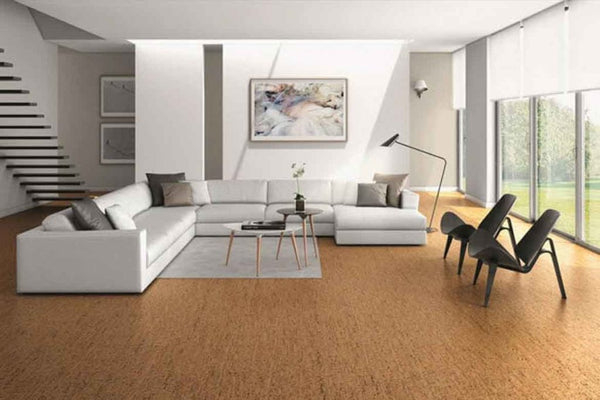
Key Takeaways
- Eco-friendly flooring seamlessly blends style, sustainability, and superior performance.
- Materials such as bamboo, cork, and reclaimed wood offer distinct advantages in terms of durability, renewability, and unique appeal.
- Mindful installation and consistent maintenance are essential for maximizing the longevity and environmental benefits of your floors.
Table of Contents
- Introduction
- Bamboo Flooring
- Cork Flooring
- Reclaimed Wood
- Linoleum
- Recycled Glass Tiles
- Polished Concrete
- Installation and Maintenance
- Certifications to Look For
In today’s world, environmental responsibility is more than a trend—it’s a necessity. Increasingly, homeowners are seeking ways to create beautiful, healthy, and sustainable living spaces. Flooring, as a major design and functional element in every home, offers a significant opportunity to incorporate eco-friendly options that combine stunning aesthetics with long-lasting durability. Whether you’re renovating or choosing finishes for a new build, options like European white oak flooring can help you achieve a modern yet sustainable interior. Designing sustainable flooring combines style, comfort, and luxury without compromising the environment. Eco-friendly options utilize renewable materials and repurpose waste, thereby enhancing indoor air quality and improving energy efficiency. By choosing sustainable flooring, homeowners can enhance their living spaces while making a positive contribution to the environment and ensuring the long-term availability of resources. Each decision in the selection and installation process has a significant impact on the lifestyle and ecological footprint.
Bamboo Flooring
Bamboo has become a top contender among environmentally conscious homeowners due to its rapid renewability; it reaches full maturity in just three to five years, far faster than traditional hardwoods, which can take decades. Its resilience against heavy use, impressive hardness, and range of modern finishes have made it an attractive alternative for everything from contemporary lofts to cozy family homes. Bamboo resists moisture better than many woods, and its naturally varied grains and subtle hues offer versatility for a diverse range of design aesthetics.
Cork Flooring
Derived from the bark of cork oak trees, cork flooring is uniquely sustainable since harvesting does not damage or kill the tree—cork bark regenerates and can be harvested every nine years. This material is naturally hypoallergenic, mold-resistant, and acts as an excellent insulator for both sound and temperature, enhancing comfort throughout your home. Its cushioned feel underfoot makes cork an outstanding choice for playrooms, kitchens, or other areas where you spend time standing.
Reclaimed Wood
For those drawn to a sense of history and character, reclaimed wood flooring offers a story in every plank. Salvaged from old barns, factories, or even ships, reclaimed wood helps minimize deforestation by reusing existing materials. This flooring type not only reduces waste but also brings unparalleled warmth and authenticity, featuring visible marks, nail holes, and natural patinas that cannot be replicated with new timber. Its environmental impact is further reduced when paired with treatments that use low- or zero-VOC finishes.
Linoleum
Linoleum is often mistaken for vinyl, but it’s made from wholly natural ingredients like linseed oil, pine resin, and limestone, combined on a jute or canvas backing. 100% biodegradable and incinerator-safe at the end of life, linoleum is incredibly durable, often lasting up to 40 years with proper care. It’s naturally antibacterial, making it particularly suited for kitchens, bathrooms, and children’s rooms. Linoleum’s wide range of colors and patterns allows for creative design statements, whether you favor bold or understated.
Recycled Glass Tiles
Recycled glass flooring tiles take what was once destined for a landfill—post-consumer bottles, windows, and other materials—and transform them into vibrant, durable surfaces. These tiles reflect light beautifully and are available in endless palettes, making them a standout choice for accenting kitchens, bathrooms, or entryways. Unlike many traditional materials, recycled glass is non-porous and stain-resistant, offering low-maintenance upkeep while also providing a cleaner footprint for your home. Industry insights from Architectural Digest highlight the growing popularity of glass tiles due to their eco-credentials and stunning designs.
Polished Concrete
Polished concrete leverages the existing foundation of your home, avoiding the need for additional flooring materials. By refining and sealing the concrete, you achieve an ultra-modern, industrial look that is easily customizable with stains, pigments, or finish patterns. Polished concrete stores thermal energy, making it an energy-efficient choice for homes equipped with radiant heating systems. Additionally, when properly cared for, it can last the life of the building, reducing waste and its overall environmental impact.
Installation and Maintenance
Beyond material selection, installing your eco-friendly floor responsibly is crucial. Opt for adhesives and finishes with low or no volatile organic compounds (VOCs) to preserve indoor air quality. Routine care—like sweeping, spot-cleaning spills, and using the appropriate protective pads—extends the life of your flooring, delaying the need for replacement and further conserving resources. For long-term sustainability, plan periodic maintenance, such as refinishing or resealing, to keep surfaces looking their best while upholding your commitment to eco-conscious living.
Certifications to Look For
With the proliferation of green claims, verifying environmental credentials is essential. Look for certifications such as:
- FSC (Forest Stewardship Council): Ensures wood and bamboo are sourced from responsibly managed forests.
- GreenGuard Certification: Certifies products for minimal chemical emissions upon installation.
- FloorScore Certification: Vouches for exceptionally low indoor air contaminant emissions, providing peace of mind for your home’s safety.
Choosing eco-friendly flooring is a long-term investment in the beauty, health, and sustainability of your home. With numerous aesthetically pleasing and practical options available, it’s never been easier to create modern interiors that are thoughtfully designed for the future.